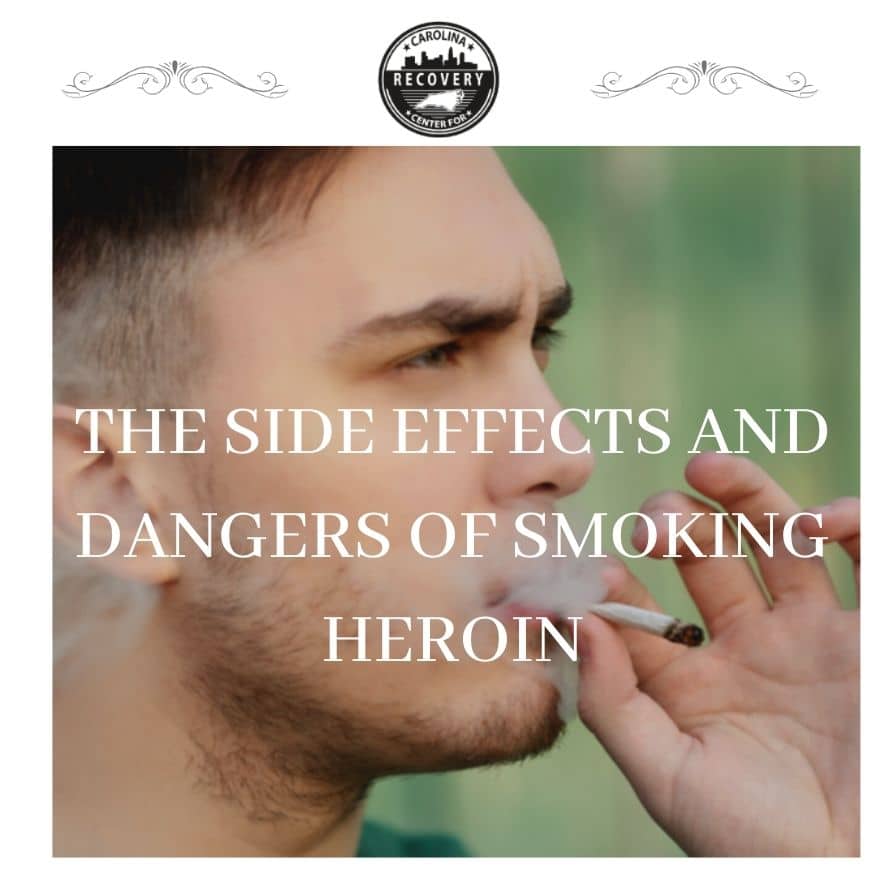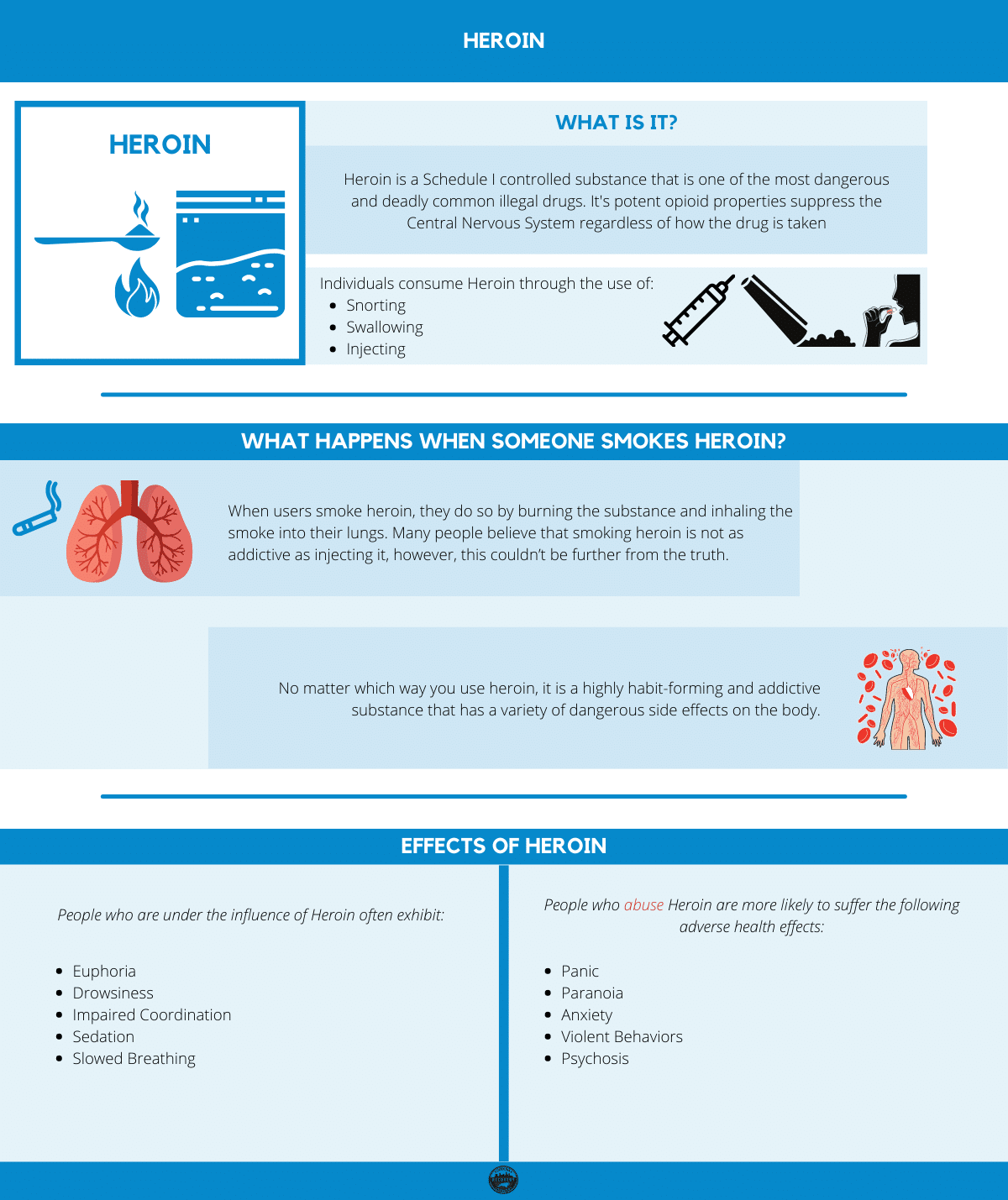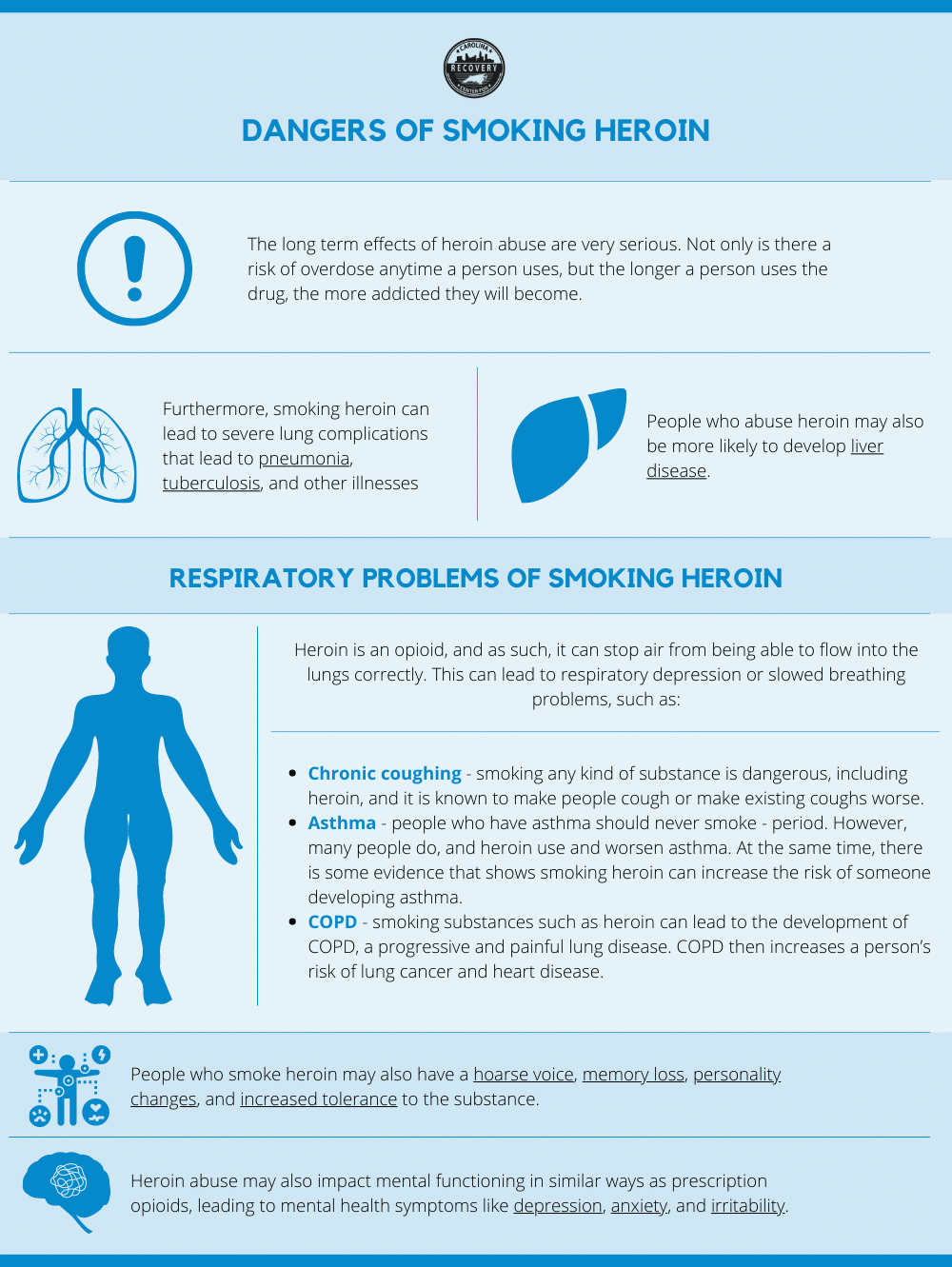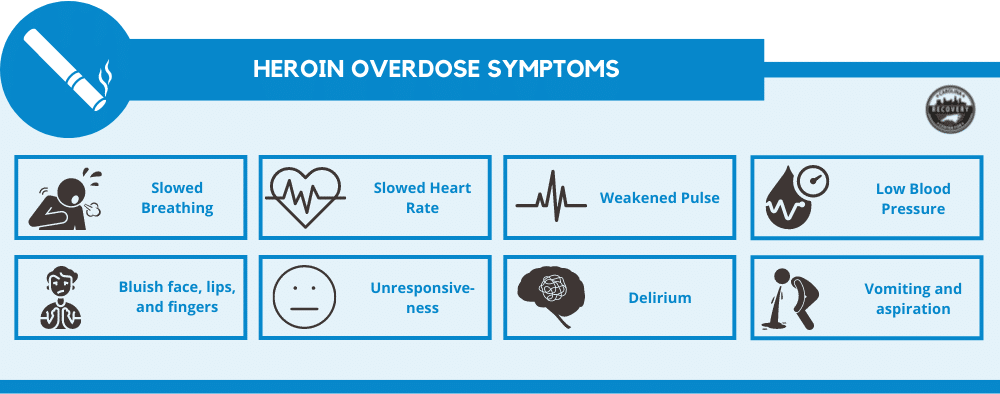The Side Effects and Dangers of Smoking Heroin

Medically Verified: 2/1/24
Medical Reviewer
Chief Editor

All of the information on this page has been reviewed and verified by a certified addiction professional.
Heroin is a widely used illicit opioid that is made from morphine, a narcotic used for pain relief. All forms of heroin are illegal, so the color and texture of the substance vary depending on where and who it is purchased from. For example, heroin can come in a powder form of various different colors ranging from white to brown, or as a sticky, black, tar-like substance.
People abuse heroin for the euphoric rush it produces after being abused. Upon consumption, heroin turns back into morphine in the body, causing feelings of pleasure that many users chase over and over again. Heroin may be consumed by smoking, injecting, or crushing and snorting the substance. While injection is typically considered the most dangerous method of administration, smoking heroin is also extremely dangerous and can easily result in an overdose.
What Happens When Someone Smokes Heroin?
When users smoke heroin, they do so by burning the substance and inhaling the smoke into their lungs. Many people believe that smoking heroin is not as addictive as injecting it, however, this couldn’t be further from the truth. No matter which way you use heroin, it is a highly habit-forming and addictive substance that has a variety of dangerous side effects on the body.
According to the National Institute on Drug Abuse, people abuse heroin due to the rush of euphoria the drug produces when consumed. People who are under the influence of heroin may seem sluggish, have flushed skin, pinpoint pupils, and slowed breathing. Heroin users may also experience increased itchiness on their arms or face.
These short-term effects occur within the first 10 minutes of smoking heroin. After the initial effects wear off, the high can last for a couple of hours. Users may “nod out” or seem as though they keep falling asleep and alternating between states of consciousness.[1]
When the effects of heroin wear off, users will sober up. Some may begin to crave more of the drug. Others who are addicted to heroin will begin experiencing opiate withdrawal symptoms, such as restlessness, muscle and bone pain, cold sweats, insomnia, depression, nausea and vomiting, and more.

Dangers of Smoking Heroin

The long term effects of heroin abuse are very serious. Not only is there a risk of overdose anytime a person uses, but the longer a person uses the drug, the more addicted they will become. Furthermore, smoking heroin can lead to severe lung complications that lead to pneumonia, tuberculosis, and other illnesses. People who abuse heroin may also be more likely to develop liver disease.
Heroin is an opioid, and as such, it can stop air from being able to flow into the lungs correctly. This can lead to respiratory depression or slowed breathing problems, such as:
- Chronic coughing – smoking any kind of substance is dangerous, including heroin, and it is known to make people cough or make existing coughs worse.
- Asthma – people who have asthma should never smoke – period. However, many people do, and heroin use and worsen asthma. At the same time, there is some evidence that shows smoking heroin can increase the risk of someone developing asthma.
- COPD – smoking substances such as heroin can lead to the development of COPD, a progressive and painful lung disease. COPD then increases a person’s risk of lung cancer and heart disease.
People who smoke heroin may also have a hoarse voice, memory loss, personality changes, and increased tolerance to the substance. Heroin abuse may also impact mental functioning in similar ways as prescription opioids, leading to mental health symptoms like depression, anxiety, and irritability.
Another danger of smoking heroin is the potential that the drug is mixed with fentanyl. Fentanyl is a synthetic opiate that is 50-100 times stronger than heroin and morphine, so even the smallest of amounts can lead to an overdose. Oftentimes, it is virtually impossible for the naked eye to tell whether or not a batch of heroin contains fentanyl, and fentanyl overdoses are on the rise in the United States.
Signs and Symptoms of a Heroin Overdose
Even though injecting the drug is the most dangerous way to use heroin, smoking the drug can also lead to overdose. People who have a low tolerance are at an especially high risk of overdosing after smoking heroin. The symptoms of a heroin overdose include:[2]

- Shallow or slowed breathing and heart rate
- Weakened pulse
- Low blood pressure
- Bluish face, lips, and fingers
- Unresponsiveness
- Delirium or disorientation
- Vomiting and aspiration
If you or someone you know is experiencing an overdose, you must seek medical attention immediately. The sooner help arrives, the more effective treatment will be. Heroin overdoses are typically treated with Narcan (naloxone), a medication that was approved by the FDA in 2014 to reverse opioid overdose.
How Smoking Heroin Can Lead to Dependence and Addiction
Heroin is an extremely addictive and dangerous drug. Most users begin using it by smoking or snorting it. When abused, users will begin to develop a tolerance. Tolerance simply means that a person’s body has gotten used to a certain dose of a substance, so it requires a higher dose to feel the same effects. Whether users are smoking, snorting, or injecting heroin, tolerance can develop in as little as 2-3 days.
Once users begin using increasing amounts of heroin, most become physically dependent on the substance. This means that a person’s body can no longer function normally unless there is heroin in the system. People who are dependent on heroin will experience withdrawal symptoms when they stop using the drug or when the drug’s effects wear off.
Tolerance and dependence are two key components that make up drug addiction. Despite being painful and difficult to deal with, heroin addiction is completely treatable with the help of a comprehensive addiction treatment program.
Find Help for Heroin Addiction Today
If you or a loved one are smoking heroin and think you are addicted, there is no reason to delay getting treatment. Our compassionate team of drug and alcohol counselors is standing by, eager to take your call. Pick up the phone and call today to get started with a heroin rehab near you.
References:

